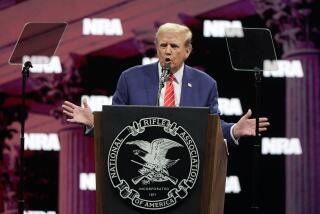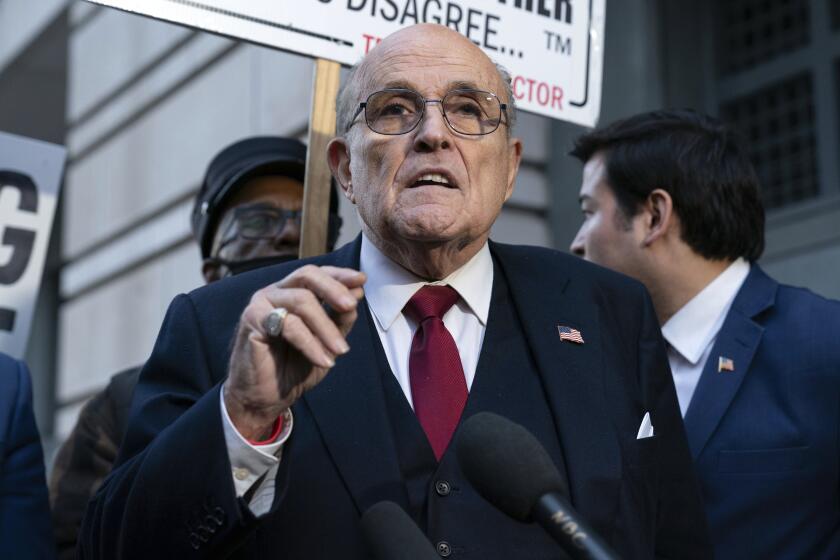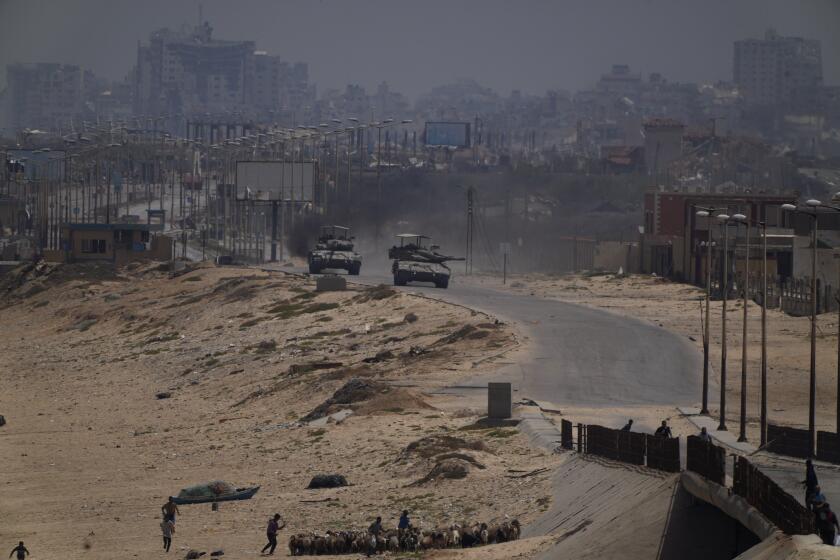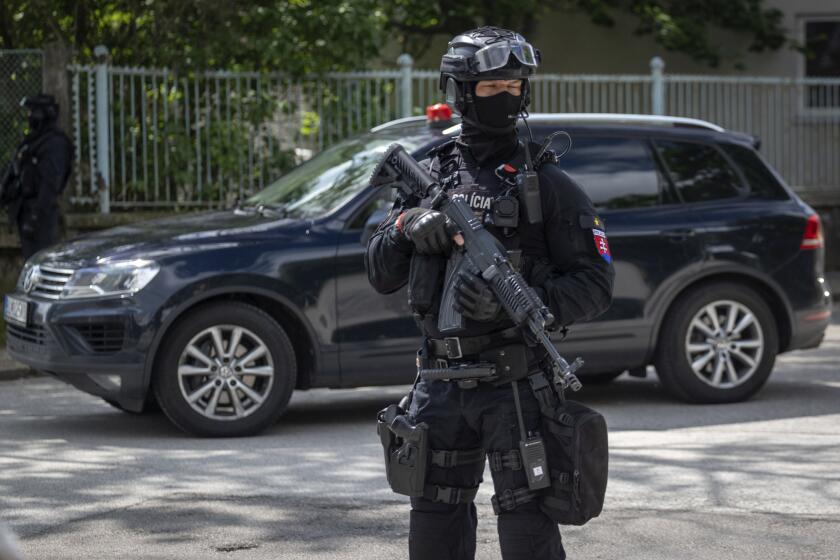Iraq Trial Marked by Chaos, Drama
The judge presiding over the trial of Saddam Hussein and seven co-defendants struggled to control the proceedings Thursday as a prosecutor pleaded to quit his job, the defense team threatened to walk out, and the former dictator took verbal shots at the Bush administration.
“Please allow me to leave this court,” said the prosecutor, one of three present in court. “This is becoming a political podium.”
He was interrupted by Hussein’s half brother, Barzan Ibrahim Hasan, who screamed from the defendants’ benches: “Listen to him!”
Hussein and the others are charged with crimes against humanity stemming from alleged retribution against the Shiite Muslim residents of Dujayl, a village about 50 miles north of Baghdad, after an assassination attempt in 1982. The prosecution charges that more than 140 people were executed and many others were exiled after Hussein escaped the attempt on his life as he drove through the village.
The trial, adjourned until Jan. 24, is the first of what is expected to be a series of cases focusing on the former regime’s crimes. The prosecution is trying to prove systematic brutality against villagers.
Lacking broad international backing, the court’s U.S. and Iraqi organizers have been at pains to make the trial seem fair. But on Thursday, prosecutors as well as defenders cried foul.
Judge Rizgar Mohammed Amin has refrained from using his gavel to halt defense antics, which have included interrupting and insulting witnesses, launching tirades against U.S. foreign policy and complaining frequently about their treatment at the hands of their American captors.
At one point Thursday, lead prosecutor Jaafar Mousawi lectured Hasan, who had been Hussein’s chief of intelligence, on the importance of civility in the courtroom.
“It’s inappropriate to broadcast those profane and insulting words,” he said. “This behavior in a courtroom should not be broadcast or shown to the audience.”
The defense team, too, threatened to walk out. Lawyers and defendants warned of leaving after a guard lightly touched Hasan, asking him to sit down.
“We’re in the cage in front of you, the guard humiliated us, and you can’t even kick him out?” Hussein complained. The judge, with a sigh, complied.
He denied the effort of the prosecutor, who said he had been insulted by Hasan, to resign.
Hussein, who on Wednesday accused his U.S. captors of abusing him, said that denials by the Bush administration could not be believed. “The White House lied when it said Iraq had chemical weapons,” he said. “We don’t lie. The White House is lying.”
Wearing a crisp white shirt and dark blazer, the former strongman occasionally interrupted the proceedings. He often spoke of himself in the third person, at one point complaining that the U.S. had taken away his favorite watch.
Switching between jocular and imperious, Hussein also directed insults at the audience after his brother complained that someone was making fun of them.
“Let the monkeys laugh,” he said. “The lion doesn’t care about a monkey in a tree laughing at him.”
The defendants’ rambling complaints sharply contrasted with the vivid testimony given by three witnesses, who, speaking behind a blue curtain to conceal their identities, gave hourlong accounts of torture and the execution of relatives.
One, who said he was 8 in 1982, recounted that his father, three uncles and a grandmother were detained after the assassination attempt. Only his grandmother returned, he said. The others were executed.
“I request blood for my blood,” he said.
Defense lawyers challenged the testimony as hearsay and questioned his memory.
The second witness, who was 14 at the time, said he had been at home during Hussein’s visit to Dujayl. About three weeks later, security officials came to his house and arrested him and his family.
At the first jail they were taken to, they saw relatives who had been so badly abused that they were unrecognizable.
“Their faces were yellow and there was a very foul smell,” he said, describing the crowded detention facility. “I was terrified.”
He said he saw one prisoner who had plastic melted onto his body and another who had to kneel because the skin on his back had been peeled away.
The witness and his mother were transferred to Abu Ghraib prison, he said, and later to a detention camp in the desert.
At Abu Ghraib, he said, prison guards forced boys and men to crawl on the floor while hitting them with cables in front of their screaming wives and mothers. Many children and teenagers died in the prison from malnutrition and untreated ailments, he said.
The witness said he and his mother were detained for four years. His 70-year-old father and 17-year-old brother never returned from Abu Ghraib. He later received a death certificate for them showing they had been executed, he said.
In cross-examination, defense lawyer Najib Nuaimi, a former Qatari justice minister, tried to make a distinction between the actions of officials on the ground and Hussein’s political leadership, who he claimed bore no responsibility for the abuse. He asked if the witness or his family had filed complaints with Hussein’s government after their release.
“Who am I going to file a complaint with?” the witness replied. “We could not say a word.”
The former Iraqi president seemed to acknowledge parts of the witness’ testimony, explaining that the children were taken to the desert because their mothers were going there and they should not be left behind “like street children.”
A third witness also described his family’s alleged suffering after the Dujayl attack. “It was only after the fall of Baghdad we discovered seven of my brothers had been killed,” he said.
“All the Dujayl families are simple farmers. They don’t want to abuse anybody. What is our guilt?”
More to Read
Start your day right
Sign up for Essential California for news, features and recommendations from the L.A. Times and beyond in your inbox six days a week.
You may occasionally receive promotional content from the Los Angeles Times.






